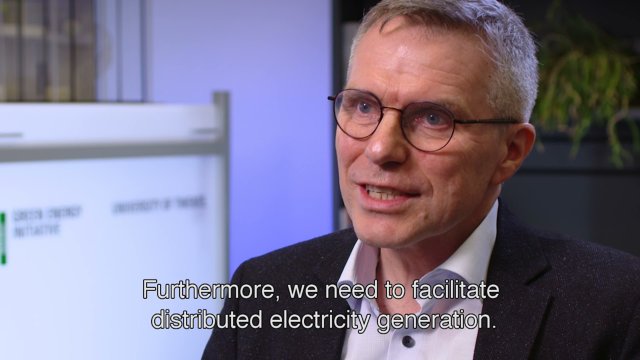The energy transition changes the demands we place on the electricity grid. Consumers can become producers, and renewable energy sources do not generate power at a constant rate. We are moving to a complex system of modalities, transport, storage and conversion system of energy. Current infrastructure was not designed to handle these changing demands. The Digitalization of the Energy System (DES) programme aims to help transform the energy system to a seamless, cost-effective (electricity) energy system, from generation to end-use, capable of meeting all clean energy demands and capacity requirements.
Distributed, user-based and smart
According to the Dutch integral national energy- and climate plan 2021-2030, moving from the current, traditional electricity grid to a distributed, user-based and smart grid that can handle the new reality will require new technology development and technology implementation projects. At the same time, societal aspects around the implementation and use of these new technologies need to be considered. Solutions are needed to facilitate distributed electricity generation, smooth out peaks and valleys, better balance between supply and demand and smart ways to handle conversion to and from other energy carriers and -infrastructure.
To realize these system innovations, five programme missions have been identified:
- Demand-side management: finding and exploiting flexibility on the consumer side for better matching of energy supply & demand to improve integration of renewable energy sources (RES) to the grid.
- Microgrids: integration of (renewable) distributed energy sources to the grid and exploiting potential of operating disconnected from the main grid .
- Integrated energy control: managing (decentralized) energy storage for grid back up (flexibility to power grid) and storage of renewables.
- Markets & price mechanisms: design new markets, tariff systems and energy communities that allow for fair pricing to support the further integration of local suppliers (prosumers) and RES to the grid.
- Safety & security: Secure communication systems, distributed security monitoring, and islanded operation of micro-grids to prevent cyber-attacks on smart grids.
Movie
Introduction of the Digitalization of the Energy System programme in a short movie:
Programme coordinator
Are you interested in working with us? Contact the programme coordinator for more information.
Involved researchers
European strategy
The DES programme is part of the Green Deal Clean Energy policy area, subarea EU Energy System Integration Strategy.








